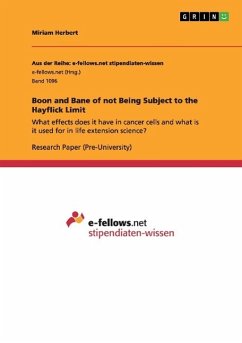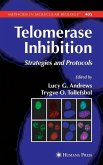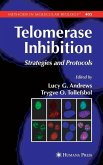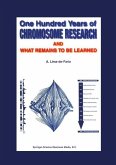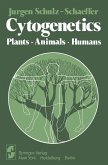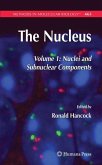Pre-University Paper from the year 2014 in the subject Biology - Cytology, grade: 15 Punkte = 1,0, , language: English, abstract: All living things have to die. This fundamental truth is held to apply even to the smallest unit of life - cells. However, there is a phenomenon that is sometimes called biological immortality. It refers to cells that live beyond their proclaimed life span, which is roughly set by the Hayflick limit. All cancer cells have acquired this property; they divide indefinitely, which is the essential problem with cancer cells. On the other hand, researchers are very much interested in the molecular mechanism behind this property to may be able to use it to extend life and rejuvenate cells. Cells that are not subject to the Hayflick limit are generally seen as a threat to the human body, however, they are interesting subjects of experiments and scientists have already learned a great deal of knowledge by studying these mutants and continue to gain more important insights into the functioning of any kind of human body cell. Immortal cells can be boon and bane for humankind. Certain aspects of this issue will be discussed.

